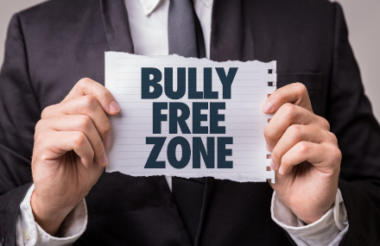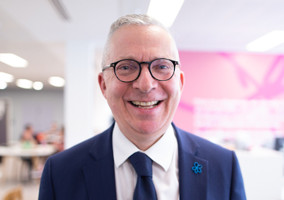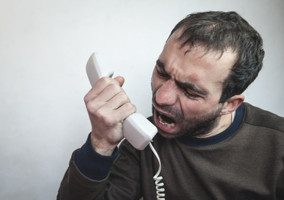Alzheimer’s Society and the Samaritans have both been subjected to critical news stories in the national press this week amid serious allegations of bullying in their workplaces. But if you think it couldn’t happen at your charity then think again.
This culminated yesterday in Samaritans saying that it would not proceed with the appointment of Jeremy Hughes as chief executive. Both charities deny any wrongdoing and say they take the issues seriously, but don’t seem to have demonstrated a lot of empathy for victims of bullying.
While there’s no definitive data, it is becoming clear bullying across the sector is widespread and damaging, and to think otherwise is naive. The true scale of the problem is only just coming to light, but if the sector does not get a grip on it soon things could get much worse.
Separately to this week’s allegations, we’ve recently seen serious concerns about the culture at a number of high-profile charities, including RSPCA, NCT, Amnesty International, Lumos, Save the Children and Refuge. All of which are now at different stages of addressing the problems.
But they are just the tip of the iceberg, and its likely the media scrutiny has helped push those charities into improving their culture. There are likely to be many more that we just don’t know about, yet.
Last year ACEVO and the Centre for Mental Health produced a valuable report, In Plain Sight, which shone a light on the experiences of charity workers. Worryingly it found that just 3 per cent of those surveyed who had experienced bullying felt the charity had resolved the problem satisfactorily. And an anonymous article for Civil Society Voices set out the devastating consequences of being bullied when working for a charity.
Bullying is bad. But not dealing effectively with isolated incidents leads to the kinds of toxic cultures that push people towards sympathetic newspapers.
What do charities get wrong?
Thinking that bullying couldn’t possibly happen is usually the first step towards dismissing allegations.
Charities are getting good at putting the beneficiary/service user/client at the centre of their thinking and valuing their lived experience. They should apply similar principles to their staff.
Yet too often when allegations emerge, either in private or public, the response is to fall back on process and procedure, which can inadvertently place blame on the victims.
This week Alzheimer’s Society emphasised its “zero tolerance” approach and its processes, but barely expressed sympathy for those who said they had experienced.
Alzheimer’s Society also appeared to be trying to deny that bullying was a big problem, by stressing that 91 per cent of its staff said they were proud to work for the charity.
As many people pointed out on Twitter, being proud of the charity and its mission does not preclude you from being a victim of bullying.
As for Samaritans, its statement responding to the allegations made by Unite about its culture said it “doesn’t recognise the claims” before adding that positive culture is important.
Unite might not have even been made its allegations public if the charity had not taken four days to respond to questions about Guardian's story. Samaritans' silence left a vacuum that was filled by Unite.
Why do people run to the press?
The press is hardly ever the first port of call for someone with a grievance against a charity. For the most part they believe in the cause and don’t want to cause harm by being the source of negative headlines.
People approach journalists because they feel they have no other option. The charity’s internal grievance procedure has not worked.
The Charity Commission and other regulators also have a role to play here in making sure that there is a back-up when the charity’s own systems do not work.
The Commission has acknowledged that in the case of Alzheimer’s Society it did not follow up on a report it received, and is now doing so. It remains to be seen if this was a one-off or if there are more examples of the Commission not acting on concerns.
This again raises serious questions about whether the regulator has enough resources to carry the job expected of it.
What next?
All charities should acknowledge that bullying can, and probably will, happen in their workplace. Then put in place steps to actually deal with it when it does.
The cause is usually complex and the solution unlikely to be straightforward.
It’s important to recognise that bullying is sometimes hard to articulate or explain. It’s not a case of hair pulling or name calling, but can be tone of voice, being excluded or not being heard.
There is certainly no place for sweeping aside allegations. This only enables a toxic culture that will eventually blow up dramatically and publicly.
Related articles











